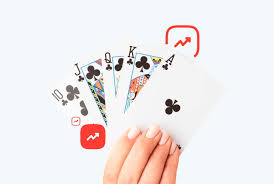
Slot games, whether in physical casinos or online platforms, are among the most popular forms of gambling worldwide. Their simplicity, vibrant graphics, and the thrill of hitting a jackpot make them enticing for both novice and experienced players. However, many players find themselves returning to these games time and again, often spending more money and time than they originally intended. This phenomenon raises an important question: Why are slot games so addictive?
To understand the addictive nature of slot games, we need to delve into the science and psychology behind them. From the mechanisms of reward processing in the brain to the role of sound and visuals, several psychological and neurological factors contribute to the allure of slot machines.
1. The Power of Variable Reward Schedules
One of the primary reasons slot games are so addictive lies in their reward system, which operates on what psychologists call a variable reinforcement schedule. This is a concept that stems from the work of B.F. Skinner and his studies of operant conditioning. In simple terms, a variable reinforcement schedule means that players do not know when a reward will occur or how big it will be, but they know that if they keep playing, they have a chance to win.
The unpredictability of winning keeps players engaged, as their brains are constantly “waiting” for that next big win. This uncertainty triggers the dopamine system, the brain’s reward center. Dopamine is a neurotransmitter associated with pleasure and motivation. When you win a payout, your brain releases dopamine, reinforcing the behavior and making you want to keep playing. The variable schedule means that the wins are irregular—sometimes frequent, sometimes rare—but this unpredictability heightens the sense of excitement and compulsion to continue.
This mechanism is similar to the way gambling addicts become entrapped by slot machines. The brain gets addicted to the unpredictable but rewarding nature of the game, much like how a gambler can become hooked on the idea of eventually hitting a big payout.
2. Near Misses: The Brain’s False Reward
Another psychological factor that contributes to the addictive nature of slot games is the “near miss.” A near miss occurs when the reels almost align for a win, but just fall short. For example, you might land on two matching symbols, but the third symbol is one space away. Despite not winning, this near miss feels almost like a victory, triggering a similar response in the brain as an actual win.
Research has shown that near misses have a profound impact on player behavior. When a player experiences a near miss, the brain reacts with a spike in dopamine, much like a win would. This creates the illusion of progress, motivating players to continue spinning in hopes of achieving the full win. The illusion of control is a key psychological element here: players may feel they are “close” to winning, which increases their desire to keep playing. This is why near misses are often used strategically in slot game design—they keep players hooked without having to deliver a full win.
3. Visual and Auditory Stimuli: The Power of Sound and Light
Slot machines are designed to appeal to the senses, using lights, sounds, and animations to keep players engaged. The flashing lights, celebratory sounds, and engaging animations that follow a win are deliberately crafted to create a sense of excitement. Even when players don’t win, these stimuli can heighten their emotional arousal and encourage them to play more.
The sound design plays a particularly important role. Winning combinations trigger a range of sounds—from jingles to loud celebrations—designed to heighten the sense of reward and excitement. These auditory cues act as a powerful reinforcement, conditioning players to associate the sounds with pleasure and rewarding experiences.
The combination of bright colors, flashing lights, and engaging sounds creates an immersive environment, much like a video game, where players are drawn into the experience. This stimulation keeps players’ attention focused on the game, making it harder to disengage. It’s a carefully curated sensory experience that capitalizes on the brain’s natural responses to reward cues.
4. The Illusion of Skill and Control
While slot machines are purely games of chance, many players believe that they can influence the outcome through strategy or skill. The frequent appearance of bonus rounds, interactive features, and free spins can create the illusion of control. Some players may feel that if they keep pressing the button at a certain rhythm or pattern, they might influence the game’s outcome.
This illusion of control is powerful. When players believe they have some degree of control over the game, it increases their sense of agency and makes them more likely to continue playing. Research shows that people are more likely to engage in behaviors that they believe will yield a successful outcome, even if there is no actual control over the result. In the case of slot games, this “pseudo-control” often reinforces the addictive behavior, as players feel they are in charge, even though the game remains entirely random.
5. Escapism and Emotional Regulation
Slot games, like many forms of gambling, offer a form of escapism for players. For individuals facing stress, anxiety, or boredom, slot games provide a way to momentarily escape reality. The bright lights, engaging visuals, and exciting sounds create an immersive environment that distracts players from their real-world problems. The potential for a big win offers a hope of financial freedom or a break from life’s pressures.
For some players, the thrill of the game provides a temporary emotional lift, especially in the face of daily stresses. When players experience emotional distress, they may turn to slot machines for a quick boost in mood. However, because the feeling of excitement is often short-lived and unpredictable, players may feel the need to keep playing to chase that emotional high.
The ability of slot games to offer a temporary reprieve from negative emotions can foster a cycle of escapism. Over time, this can lead to habitual gaming, with players using slots as a coping mechanism to regulate emotions, which increases the risk of addiction.
6. Design and Gamification: Keeping Players Hooked
Modern slot games are increasingly designed with features that enhance their addictive qualities. Developers often incorporate gamification elements—such as achievements, level-ups, and bonus rewards—that make the experience feel more like a game than a traditional gambling activity. These features give players a sense of progression and achievement, even if the game’s outcome is still random.
Progressive jackpots, which grow larger with every play until someone hits the big win, are also a key feature of slot games that keep players coming back. The promise of winning a progressively larger jackpot creates a long-term incentive to keep playing. The jackpot may seem within reach, further encouraging players to continue gambling in hopes of hitting it big.
7. Cognitive Biases and Gambling Fallacies
Slot games exploit a number of cognitive biases that make players more likely to keep playing. One of these is the gamblers’ fallacy, which is the belief that if you haven’t won in a while, you’re “due” for a win. This leads players to feel that they are more likely to win after a series of losses, despite the fact that each spin is independent and random.
Another cognitive bias is chasing losses, where players try to recoup money they’ve lost by continuing to play. This bias can trap players in a cycle of playing longer and risking more money, convinced that they can “make up” their losses.
These biases can create a sense of false hope and keep players engaged longer than they should be, despite the odds being stacked against them.
Conclusion
The addictive nature of slot games can be traced to a combination of psychological, neurological, and design factors. From the unpredictable reward system and near misses to the use of sensory stimuli and the illusion of control, slot machines are carefully crafted to keep players engaged. The combination of variable rewards, emotional regulation, and cognitive biases creates a potent recipe for addiction, making it easy for players to become immersed in the game and difficult for them to stop.
While slot games can be fun and entertaining in moderation, understanding the psychological mechanisms at play can help players make more informed decisions about their gaming habits. It is important to be aware of the risks of addiction and to engage in responsible gaming practices, ensuring that the thrill of the game doesn’t turn into a harmful obsession.
Join KKClub today for exclusive casino games and big wins – your lucky streak starts here!



